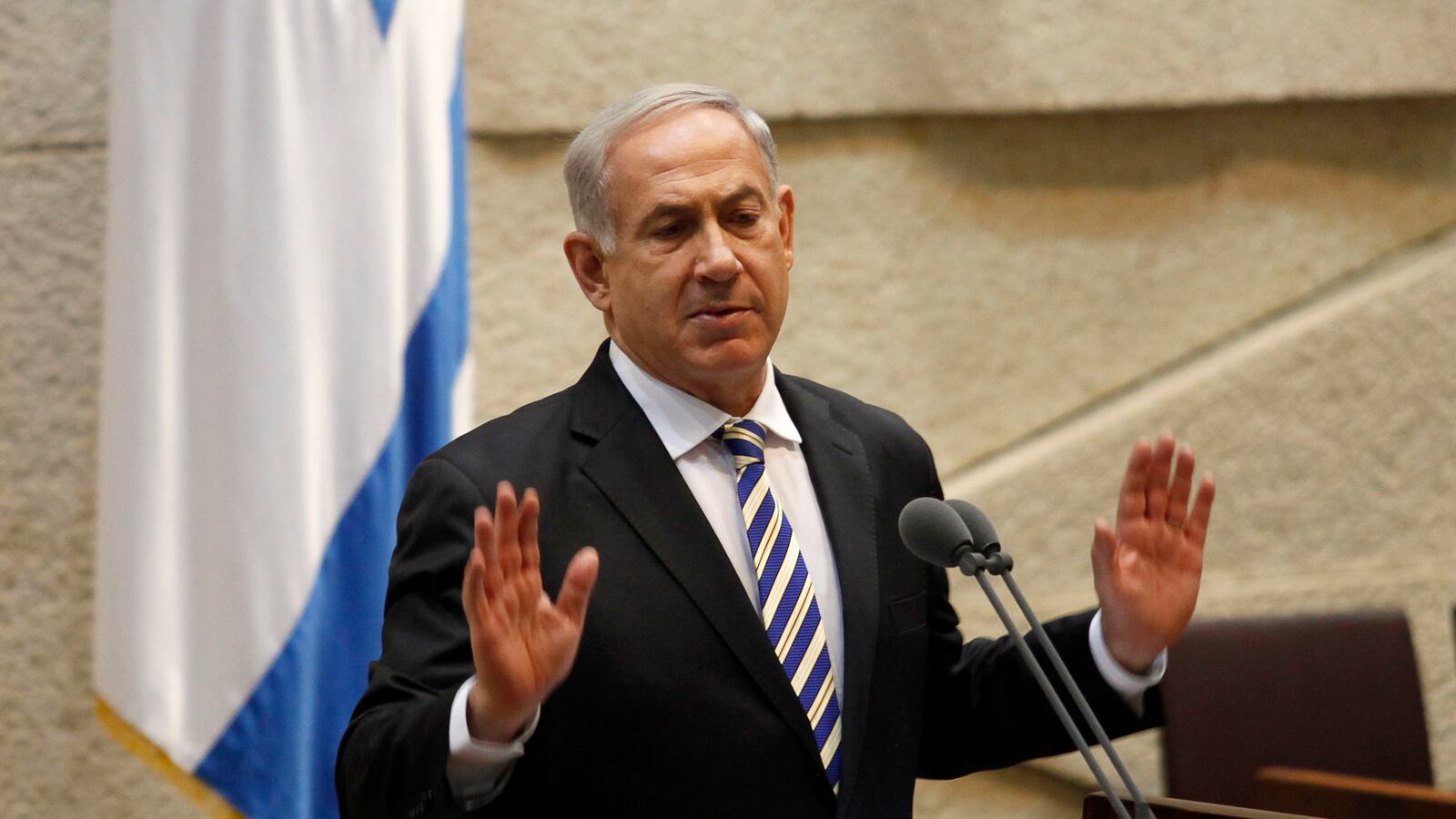A former Israeli military officer gains prominence and rises to be Prime Minister. During his first term, he ignores gestures towards peace and is labeled a hawk. But in a later term, under American pressure, he stuns his base and risks political isolation with substantial gestures towards peace. At first glance, this sounds like the political trajectory of former Prime Minister Ariel Sharon. Interestingly, current Prime Minister Benjamin Netanyahu may be following a similar path.

Ariel Sharon began his political career with conservative opinions on the Arab-Israeli conflict, especially regarding the construction of settlements in the West Bank and Gaza Strip. Some even thought of Sharon as the father of the settlement movement; he said he considered Netzarim, an Israeli Jewish settlement in Gaza, “to be the same as Tel Aviv.” Nonetheless, this same Sharon was the leader who orchestrated the dramatic 2005 disengagement from Gaza, forcibly removing over 8,000 Israeli settlers and IDF soldiers from the territory. Along with other Likud party officials, Knesset Member Benjamin Netanyahu harshly condemned Sharon’s plan, exclaiming, “I am calling on all those who grasp the danger: Gather strength and do the right thing. [Don't] give [the Palestinians] guns, don't give them rockets, and don't give them a huge base for terror.” Despite facing a tremendous opposition within the party, Sharon executed his plan.
Although many thought that Netanyahu was a fervent hawk, he is also showing a remarkable openness to ideological change. Early in his career his stance on prisoner releases, one of the most sensitive and key issues of the conflict, was uncompromising. As opposition leader in 2007, when former Prime Minister Ehud Olmert was considering releasing Palestinian prisoners as a gesture for peace, Netanyahu bitterly rejected Olmert’s stance. Netanyahu declared, “The release of prisoners before the conference is not the path of peace, it is the path of terror.” Nonetheless, this month Netanyahu agreed to release 104 Palestinian prisoners, many of whom, with “blood on their hands,” have been incarcerated for over 20 years, including one who slaughtered a Holocaust survivor.
Reminiscent of Sharon, Netanyahu declared, “This moment is not easy especially for the families, the bereaved families, whose heart I understand. But there are moments in which tough decisions must be made for the good of the country, and this is one of those moments.” Just as Sharon faced strong resistance within his own party, Netanyahu is currently in a similar position. Important Likud Knesset members including the current Deputy Foreign Minister Zeev Elkin oppose the establishment of a Palestinian state—the basic foundation for these negotiations. Additionally, Likud minister Gilad Erdan explained that he could not support the prisoner deal on ethical grounds, because unlike other deals, “in this case there is no certain reward for Israel and its citizens.” Despite this internal party backlash, Netanyahu pressed ahead with the prisoner release.
Netanyahu has continued in his arc of change by directly negotiating with Palestinian President Mahmoud Abbas. As recently as last year, Netanyahu harshly rebuked Abbas, declaring he had “turned his back on peace” and demanding that he choose between “the path of peace or the path of Hamas.” Now Netanyahu is willing to engage with Abbas, legitimizing him as a partner for peace. Furthermore, at a joint press conference with United Nations Secretary General Ban Ki-Moon on Thursday, Abbas clarified: “We discussed the issues which are always on the table: borders, Jerusalem, settlements.” Netanyahu never refuted this statement, showing tacit agreement that dividing Jerusalem—long considered taboo by previous Israeli governments and even by Netanyahu himself—is now a realistic possibility.
Additionally, it is likely that U.S. Secretary of State John Kerry would not risk American prestige by investing so deeply in these talks, embarking on many visits to the region and announcing a timetable to reach a final agreement within only nine months, if he did not trust the seriousness of both leaders. Just as former Prime Minister Yitzchak Rabin secretly told American officials in the 1990’s that he would agree to withdraw from the Golan Heights, it is possible that Netanyahu and Abbas have offered significant private assurances to Kerry.
Although Sharon idealistically spoke about the need for peace, especially during his final speech in front of the United Nations, he still recognized the need to protect certain Israeli interests in peace talks. Sharon never advocated for a full withdrawal to pre-1967 lines as the consensus among the Israeli population opposes this move; one of his major accomplishments in April 2004 was obtaining a letter from former President George W. Bush acknowledging the United States position that “it is unrealistic to expect that the outcome of final status negotiations will be a full and complete return to the 1949 armistice lines.” Similarly, Netanyahu has not adopted extreme left-wing positions and has continued to support settlement construction in East Jerusalem and major population centers in the West Bank—positions that receive support from many Israelis.
It is true that Netanyahu is far from reaching an agreement with Abbas. Only time will tell if he is willing to make the necessary painful concessions. But if anyone is suited to sell a peace accord to the Israeli public, then Netanyahu, like Sharon, with his history of right-wing ideology, is the perfect man for the job.



